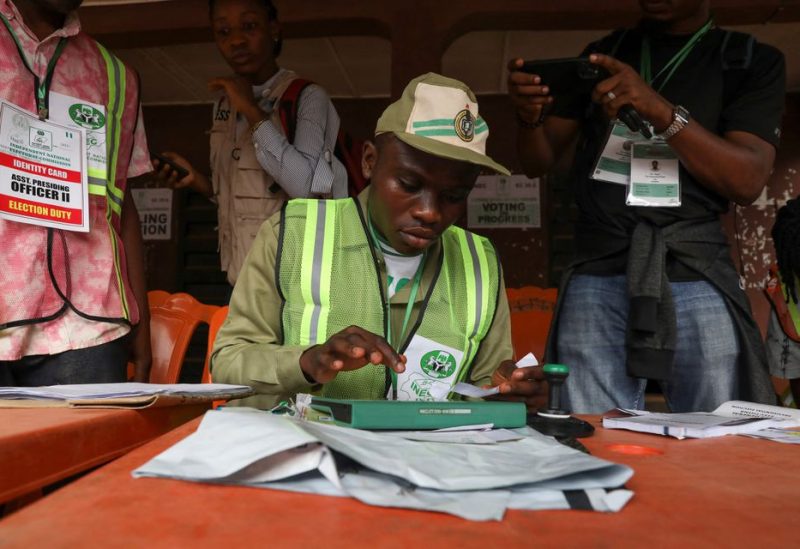
A member of the National Youth Service Corps (NYSC) operates a Bimodal Voter Accreditation System (BVAS) during Nigeria's Presidential election in Agulu, Anambra state, Nigeria February 25, 2023 - REUTERS
Long wait times at several polling places during Nigeria’s presidential election on Saturday did not prevent sizable throngs of electors looking for a fresh start following years of escalating violence and misery under departing President Muhammadu Buhari.
The most populous country in Africa is battling Islamist insurgencies in the northeast, a wave of kidnappings for ransom, clashes between herders and farmers, shortages of money, petrol, and power, as well as systemic corruption and poverty.
Reuters reporters at locations across the country saw a mixed election day picture, with some polling stations closing at the planned time of 2:30 p.m. (1330 GMT) while others had yet to open. Some suspended voting after running out of ballot papers.
“I will wait here to cast my vote. If I don’t vote how will things change?” said 23-year-old Halima Sherif, whose polling station in the northern city of Kano had not started operating by closing time.
Buhari, a retired army general, is stepping down after serving the maximum eight years allowed by the constitution but failing to deliver on his pledge to bring back order and security across Nigeria, Africa’s top oil-producing country.
The contest to succeed him is wide open, with candidates from two parties that have alternated in power since the end of army rule in 1999 facing an unusually strong challenge from a minor party candidate popular among young voters.
Independent National Electoral Commission (INEC) officials cited technical problems with a new biometric anti-fraud voter accreditation system, the late arrival of vehicles to transport them and the absence of voter registers as causes of delays.
“It is frustrating that INEC are not prepared for us. All we want is just to vote,” said Sylvester Iwu, who was among a large crowd waiting at a polling station in Yenagoa, the capital of Bayelsa State in the southern oil-producing Niger Delta.
In a televised news briefing, INEC Chairman Mahmood Yakubu said six biometric machines had been stolen in northern Katsina State and two in southern Delta State. He also acknowledged the delays but said voters would be able to cast their ballots.
“The election will hold and no one will be disenfranchised,” he said.
INEC had said before election day that anyone who joined the queue on time would be able to vote even after official closing time.